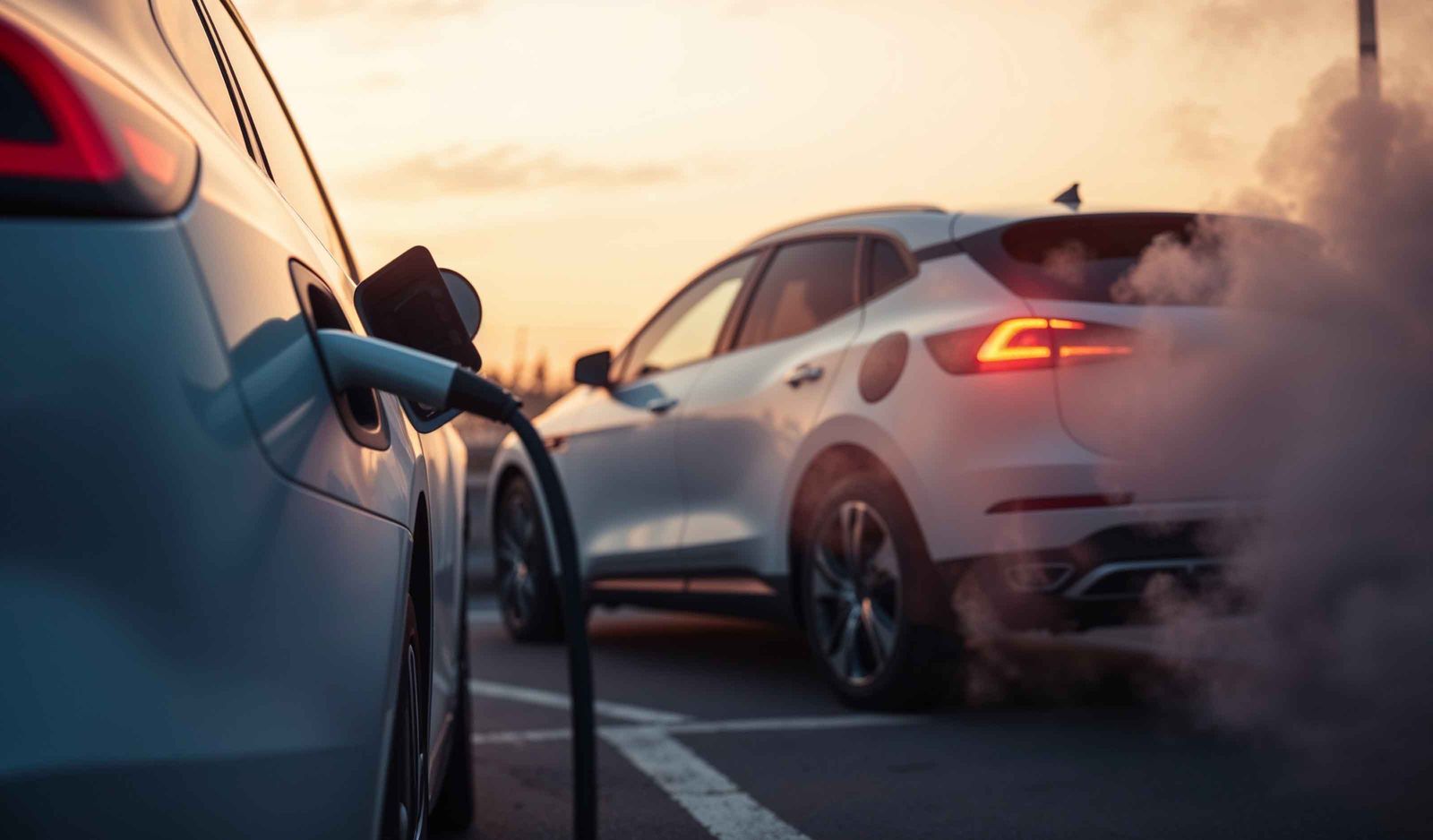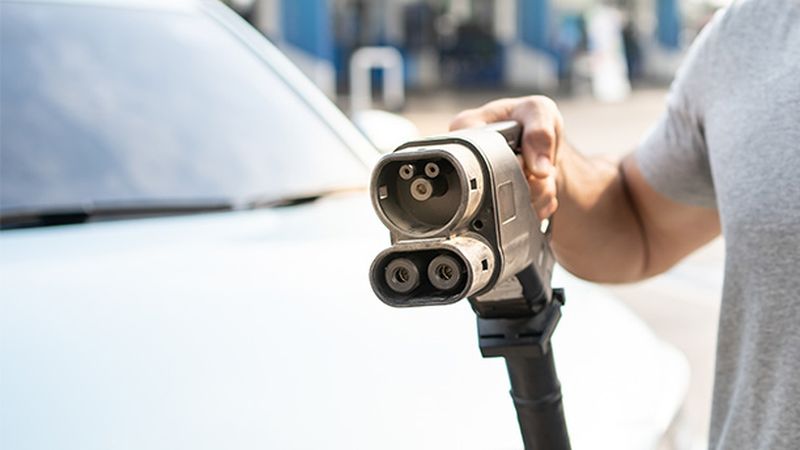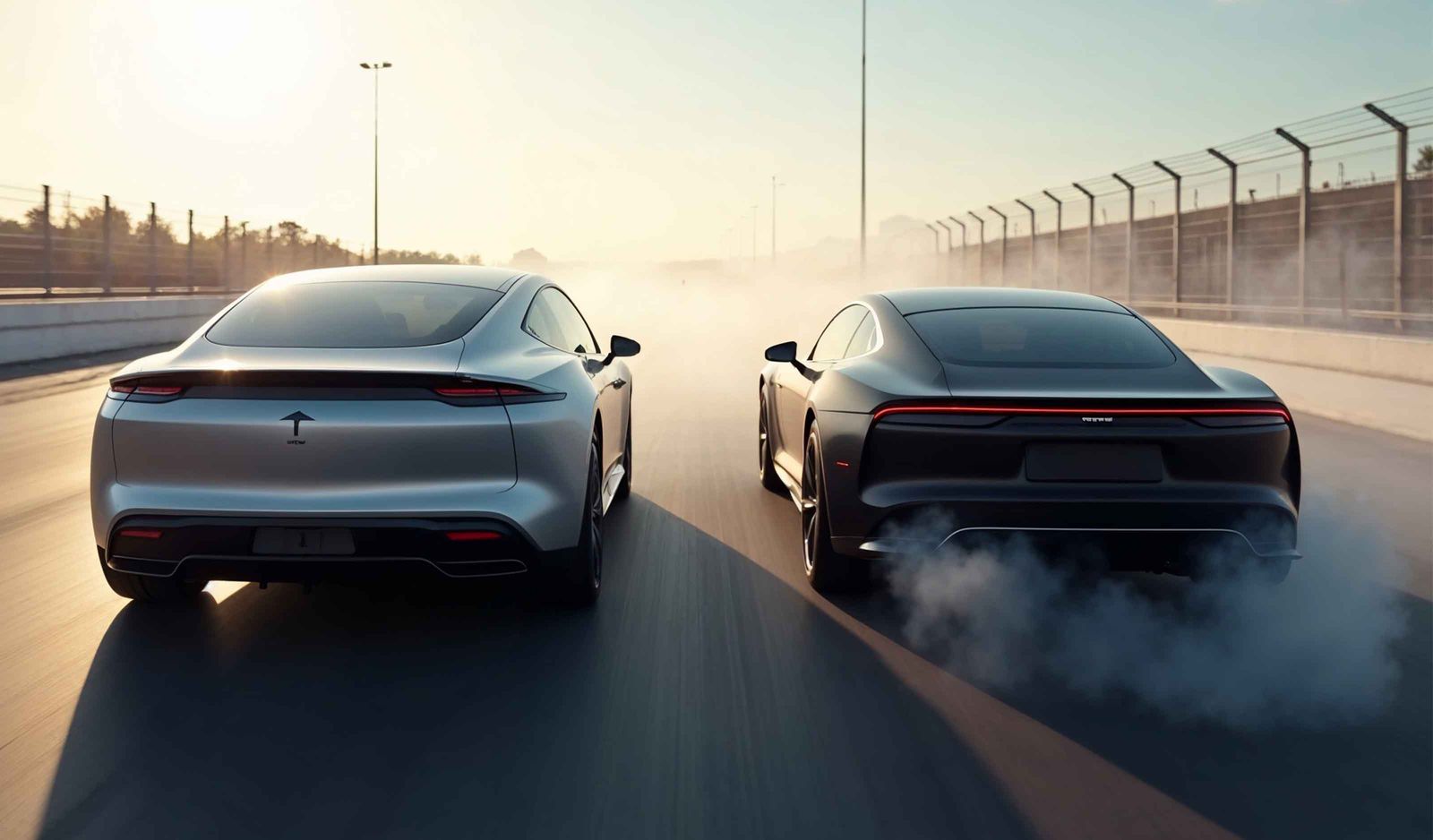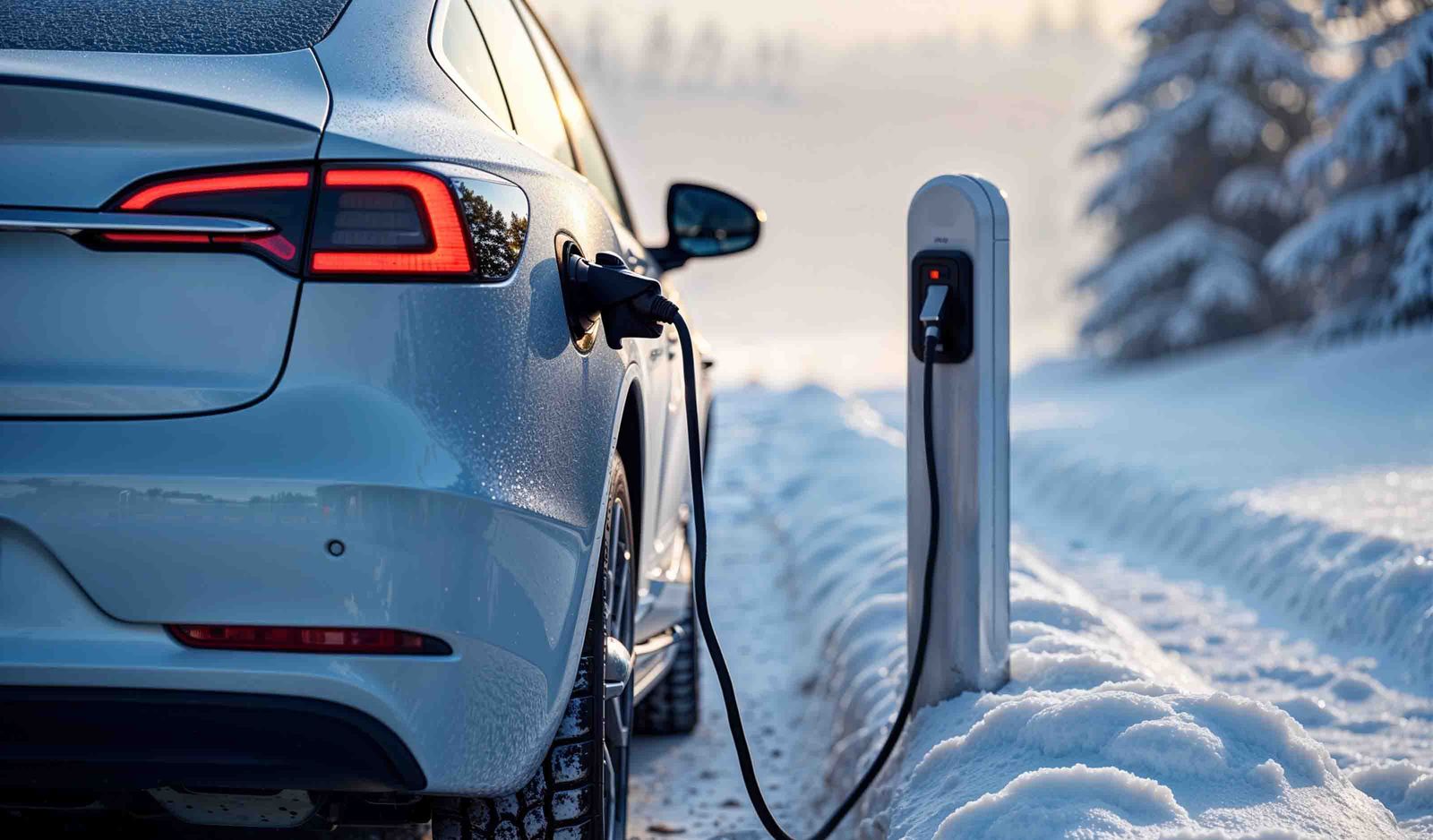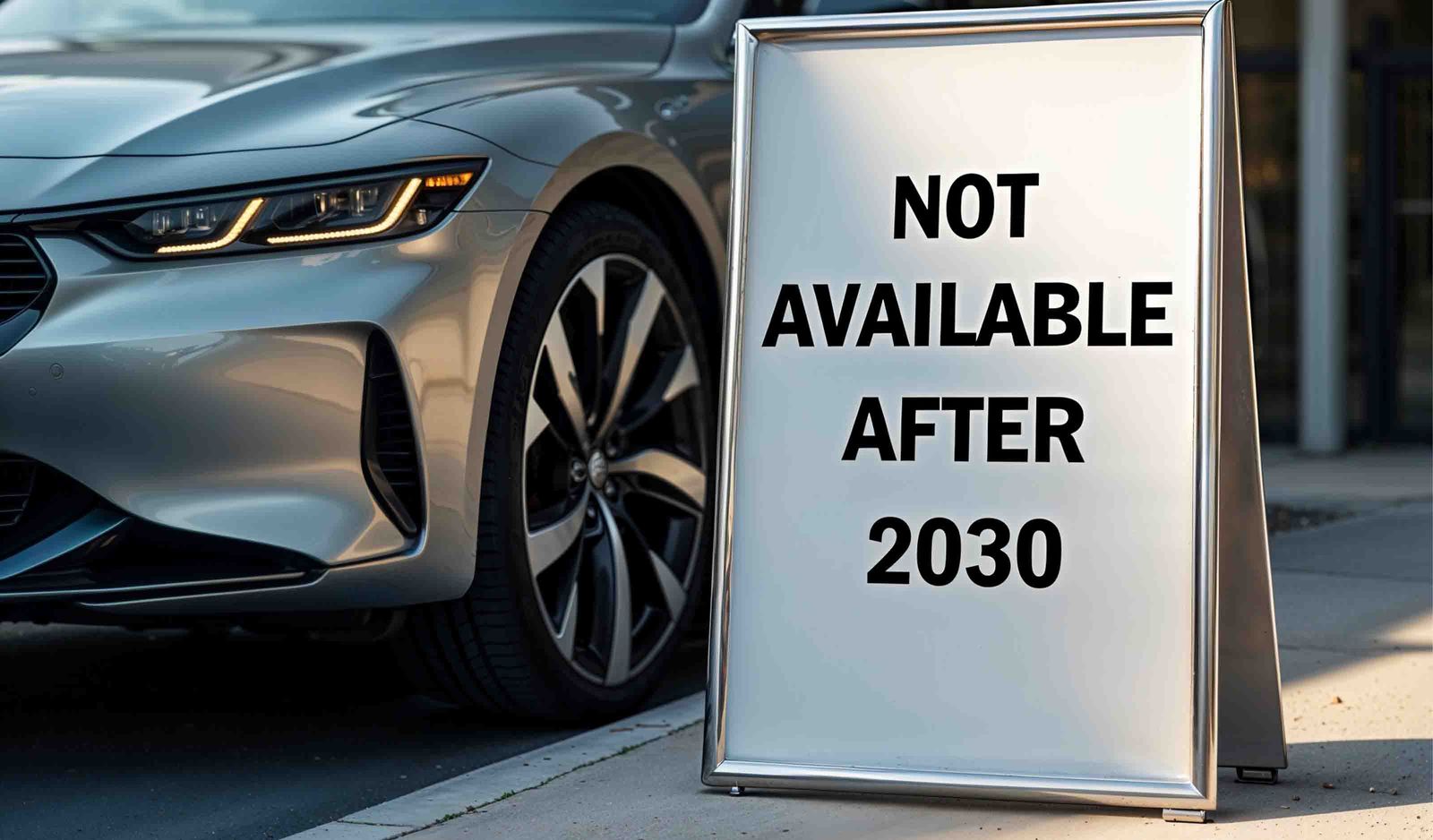Electric vs Petrol Cars Ownership FAQs
Introduction
When it comes to buying a car, many people are asking: “Should I go electric?”
A significant number of drivers have already taken the plunge, with over 1.4 million fully electric cars in the UK. And more are about to make the leap: 52% of drivers are likely to choose an electric vehicle (EV) for their next car.
Owning an EV is a very different experience to a petrol or diesel car with an internal combustion engine (ICE). So here are answers to all the questions you might have when deciding if electric is right for you.
At a glance: the pros and cons of EVs and petrol cars
There are many factors to consider when deciding whether to buy an EV or a petrol or diesel car. Let’s start with the key advantages and disadvantages of each.
| Advantages of electric cars | Disadvantages of electric cars |
|---|---|
|
|
| Advantages of petrol cars | Disadvantages of petrol cars |
|---|---|
|
|
Just comparing the purchase price of electric and petrol cars doesn’t provide the full picture. Taking everything into account, industry body Electric Vehicles UK found that more than 80% of people buying an electric vehicle in 2025 will save money compared to the equivalent petrol car.
How much do electric and petrol cars cost?
The average price of a new EV in the UK is £46,000. Prices start at £14,995 for a small car; popular luxury models like Tesla and Audi cost £69,000 on average.
By comparison, on-the-road prices for ICE vehicles start at £18,000 for a small car; popular SUV models cost up to £44,990.
Looking forward, analyst Gartner predicts that EVs will be cheaper to produce than ICEs by 2027.
The second-hand market for EVs is also growing significantly, as prices fall and battery technology improves. A landmark moment came in 2024, when used electric cars became cheaper than their petrol or diesel equivalents for the first time.
Are there incentives for buying electric cars?
You may be able to purchase an EV through a workplace salary sacrifice scheme, like the ones run by Octopus EV, Love Electric and Fleet Alliance. These allow you to pay for your EV monthly, while reducing your income tax and NI contributions.
Business owners, wheelchair users and motorcycle riders might automatically get a reduced price on low-emission vehicles, through the UK government’s plug-in grant scheme.
The government also offers various electric car schemes to help with the cost of installing an EV charger for employers, landlords, schools, renters and homeowners.
How do overall ownership costs compare?
Just comparing the purchase price of electric and petrol cars doesn’t provide the full picture. Taking everything into account, industry body Electric Vehicles UK found that more than 80% of people buying an electric vehicle in 2025 will save money compared to the equivalent petrol car.
That’s based on the lifetime costs of the vehicle, including repairs, servicing, insurance, resale value, and so on. Personal circumstances must also be factored in – including typical mileage, tax status, whether it’s a company car, and access to home charging.
What’s the cost of running electric and petrol cars?
It’s generally cheaper to charge an EV than to fill up an ICE car with petrol. Research by New Automotive suggests motorists with average mileage could save at least £3,000 a year, over the next four years by choosing an EV over a petrol equivalent. That could reach £7,000 if they clock up higher mileage.
Zapmap’s Journey Cost Calculator can help you compare the cost of ownership of EVs and ICEs. The table below shows the comparison for a petrol VW Golf, and its equivalent electric model, the VW I.D3
| VW ID.3 (Electric) | VW Golf (Petrol) | |
|---|---|---|
| Journey fuel cost | £1.21 | £3.03 |
| Cost per mile | 6.1p | 15.1p |
| Total annual fuel cost | £442 | £1,106 |
Cost per mile: electric cars vs petrol cars
The cost of petrol averages 12p to 22p per mile, depending on the engine specifications. For EV charging, meanwhile, price depends on speed: the quicker the charger, the higher the cost.
According to Octopus EV, refilling a petrol or diesel car costs 19p to 21p per mile on average. Whereas recharging an electric car costs as little as 3p per mile at home.
Charging is more expensive at faster, public charging points, but even ultra-rapid chargers cost less than 16p per mile.
What difference does using public EV chargers make?
Using a public charger costs more than charging at home – an issue for the 40%-plus of UK households with no driveway.
Zapmap estimated that at the end of 2024, 80% of the UK’s 1.4 million EV drivers had a charge point at home, which met 85% of their charging needs.
Some of the 20% without a home charger will have access to workplace charging or shared community charging. But the vast majority will depend entirely on the public network.
How much does a home charger cost to put in?
It can cost between £800 and £1,200 to install an EV charge point at home. Government grants are available, but mainly for businesses, landlords and schools.
Do EVs depreciate faster than petrol cars?
According to financial consultancy LCP, EVs typically lose 20-30% of their value in the first three years, compared to 10-20% for ICE vehicles. This is due to rapid advances in EV technology dating older models, as well as concerns about battery replacement.
It’s better news for older EVs, according to Auto Trader. By the time it’s four or five years old, an EV’s depreciation rate is the same, or even slightly less, than its petrol equivalent.
How long do EV batteries last?
EV batteries are reliable: degradation shouldn’t be a concern with most models. A recent study by Stanford University scientists suggests that EV batteries last up to 40% longer than previously thought. They’re finding usage data from EV drivers on the road is more realistic than laboratory tests.
Happily for EV drivers, most manufacturers offer a warranty of eight years, or up to 100,000 miles, on the battery, which kicks in if it falls below 70-75% of the original capacity.
Will electric cars be cheaper in the future?
With EV batteries becoming cheaper to produce, and manufacturers looking to reduce overall production costs, electric cars will become cheaper.
What’s more, the government’s Zero Emission Vehicle (ZEV) Mandate requires car manufacturers to sell a certain percentage of EVs annually to help combat climate change. This could encourage them to offer discounts on EVs to help meet their ZEV targets.
Used EV prices have also come down significantly in recent years, and are predicted to drop by a further 28% between 2024 and 2030.
Repairs, maintenance and insurance
EVs are all about simplicity: there are fewer moving parts than in an ICE, requiring less maintenance and repair work. Insurance, however, is more expensive.
What are the maintenance costs of electric and petrol cars?
More moving parts in an ICE means they need more maintenance, and more frequent repairs – with all the associated costs. However, as EVs are heavier, their tyres wear out 20% faster.
How do servicing costs compare?
According to Kwik-Fit, electric cars undergo the same checks as petrol vehicles: brakes, horn, seatbelts, aircon, and so on.
But they don’t require oil or fuel filter changes, which means they take less time, and cost less, to service. They also benefit from regenerative breaking, which reduces wear on the brake components, and keeps servicing costs down.
Do electric or petrol cars last longer?
The latest studies suggest that EVs last just as long as petrol vehicles. And with fewer moving parts, they need less maintenance and are less likely to break down.
Are electric cars cheaper to insure?
The simple answer is ‘no’. On balance, most running costs (fuel, maintenance, repairs) are lower for EVs, but insuring them currently costs more.
There are several reasons why. Their quick acceleration means insurers consider them a higher risk. Replacement parts are more expensive, as they’re newer and more specialised. It costs more to replace an EV than an ICE vehicle, as their retail value is higher.
That’s why in January 2025, Confused.com found EV drivers paying £125.81 more on average for annual car insurance – though their premiums fell by 18% in 2024.
Car tax, incentives and charges
In the UK, all vehicles fall under a certain tax band, based on their engine size, fuel type, CO2 emissions and registration date. This determines what tax the owner must pay.
Are electric cars exempt from road tax?
Before 1 April 2025, pure EVs were exempt from Vehicle Excise Duty (commonly known as road tax). But EV owners must now pay this, just like hybrid, petrol or diesel car owners.
The amount you pay may be reduced, depending on when your EV was registered. Or you may be exempt if you have a disability. Find out more on the government’s Vehicle Excise Duty webpage.
Do electric vehicles pay congestion charges?
EVs are exempt from congestion charges, as are some petrol and diesel vehicles.
If your vehicle emits a certain level of pollutants, you’ll pay congestion charges when you drive into Clean Air Zones (CAZ) across the UK, and London’s Ultra-Low Emissions Zone (ULEZ).
Find out more on the government’s clean air zone webpage.
Are the rules for parking charges different for electric cars?
There’s no difference between EVs and petrol cars when it comes to paying for parking, even when using an EV charging bay – unless specified by the carpark owner.
Performance and practicalities
There’s a lot to think about when comparing the performance of EVs and petrol cars. Energy efficiency will be high on many people’s agendas, while EV charging and range are also key considerations.
Are electric cars more energy efficient?
It takes twice as much energy to power an ICE than an EV. Plus, EVs benefit from regenerative breaking. This produces power when the car slows down or stops, which the battery can store. The braking process in an ICE consumes energy.
Are electric cars faster than petrol?
Electric vehicles pull away faster than ICEs, for several reasons. They don’t have gears, which eliminates lag – instead, they have a constant power surge. Plus, their simpler construction, with fewer moving parts, enables smoother and quicker acceleration.
Petrol cars can achieve higher total speeds, but EVs can comfortably reach legal speed limits.
Cars average weekly mileage in the UK is 130 miles. That means most EVs would only need charging roughly once a fortnight.
How does range compare between EVs and ICEs?
How far a vehicle can travel on a full battery or fuel tank comes down to several factors.
A petrol car’s range depends on the engine’s fuel efficiency – measured in miles per gallon – as well as driving conditions. For EVs, it’s the age and model of the car, battery capacity, and to a lesser extent driving conditions.
ICEs have a longer range than EVs. A midsize petrol car will manage around 400-500 miles on a single tank. The average range of an equivalent EV is 236 miles.
But EV ranges are catching up as battery technology improves, allaying ‘range anxiety’ among consumers. Some newer models can exceed 450 miles. Hybrid cars generally give you an electric range of up to 50 miles before switching to run on petrol.
That said, it’s important not to focus too much on range. While a petrol car can go more than 400 miles on one tank, you’re unlikely to travel that far without taking a break – which is exactly what an EV driver would do in order to charge their vehicle.
For day-to-day driving, the question to ask is: will an EV manage your typical journey without needing to charge? In the UK, cars only travel around 130 miles a week on average. That means most EVs would only need charging roughly once a fortnight.
How does cold weather affect EV performance?
Cold weather may slightly reduce the range of some EVs. It also makes charging slower, as the battery absorbs energy less efficiently at low temperatures. And of course, more energy will be needed to heat the interior, defrost the windows and use the wipers more frequently in winter.
Preheating the car to the optimum battery temperature before a journey can help conserve its range in cold weather.
What is the difference between refuelling and charging?
There’s just one option when it comes to refuelling with petrol or diesel: fill up at the pump.
A growing number of petrol stations also provide DC charging – but you’ve more choice with an EV:
- Plug in at home with a domestic 3-point plug or home EV charger
- Hook up to an on-street or workplace charger
- Head to a destination charger (found at places like supermarkets, garden centres and restaurants)
- Make use of one of the many EV hubs that are popping up all over the country - a designated EV charging area of six or more charging bays.
Is filling up a petrol car easier than electric charging?
With a little planning, EV charging can be easier than filling up with fuel. Just plug in overnight at home, or charge while you’re at work or your local supermarket. But it does take time.
ICE drivers need to drive to a dedicated petrol station but can fill up in a matter of minutes – and pay at the pump, or at the till with cash or card. An EV driver can charge at a forecourt too, but they must hang around until they’ve enough charge. They’ll also need an app, RFID, or bank or credit card to pay (not cash).
Running out of charge vs running out of fuel
The AA reported that 1.85% of EV breakdowns in 2024 were due to running out of charge. The equivalent figure for ICE vehicles running out of fuel was 1%.
If you run out of fuel, your roadside assistance provider will usually come out to top you up, or tow you to the nearest petrol station. They can also help if your EV runs dangerously low on charge, by giving you a boost charge, or towing you to the closest charge point.
If you’re completely out of charge, you’ll need a flatbed tow: rolling an EV damages the motor and battery. So if you’re ever in danger of running out, pull over safely, switch on your hazard lights and call for roadside assistance.
The future of electric vehicles vs petrol cars
Half of all car sales will be electric by 2035, according to the Global EV Outlook 2024 from the International Energy Agency (IEA). This also suggests EV sales are shifting to the mass market, rather than just early adopters.
Will electric cars take over?
The trends point towards EVs taking over from ICE cars in the future. IEA says car manufacturers are bringing out more and more electric models, with the number of ICE models declining.
But while manufacturers have started the transition, it’ll take longer to go fully electric than first expected, due to market conditions and consumer demand.
Volvo, for instance, had planned to produce only fully electric cars by 2030, but now expects to still also be selling hybrids. Ford had similar ambitions, but will continue to sell a mix of ICE, hybrid and EVs in Europe beyond 2030.
What’s the UK government’s timeline for banning petrol and diesel cars?
In January 2025, the UK government confirmed that no new petrol or diesel cars will be sold after 2030 – and all new cars and vans must be zero emission by 2035.
To help reach this point, the ZEV mandate obliged at least 22% of new cars to be zero-emission when it came into force in 2024. That target will rise each year, reaching 100% by 2035. In April 2025 the government announced the Zero Emission Vehicle Mandate will be updated to offer increased flexibility in how manufacturers hit the 2030 phase out.
How much longer will petrol cars be around in the UK?
You won’t have to scrap your petrol or diesel car any time soon. The ban only applies to sales of new vehicles. You’ll still be allowed to drive ICE vehicles, and buy them second-hand after 2030.
Overall, are electric cars better to own?
Deciding to go electric is likely to be a lasting move. According to EVA England, nine in ten EV drivers have no intention of going back to petrol or diesel; they also find EVs cheaper to run.
But the type of car that’s best for you comes down to personal preference, practicality and affordability.
Do you want an electric car to reduce your carbon footprint? Do you have the space and finance to install a home charger? Can you afford the higher up-front costs of an EV?
You should also consider whether you’re ready to switch to a quiet electric motor, or if you’ll miss the sound and feeling of driving a car with a combustion engine.

